Daily Writing
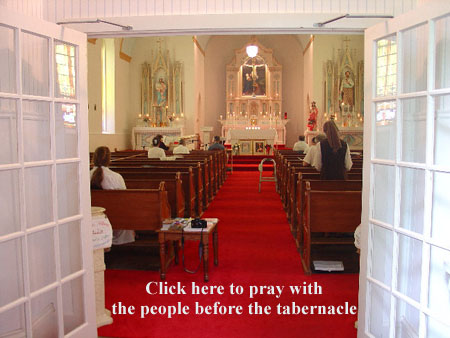
| Shepherds of Christ Daily Writing |
 |
November 15, 2009
|
November 16th Holy
Spirit Novena |
The Novena Rosary
Mysteries |
We really need funds
for the priestly mailing.
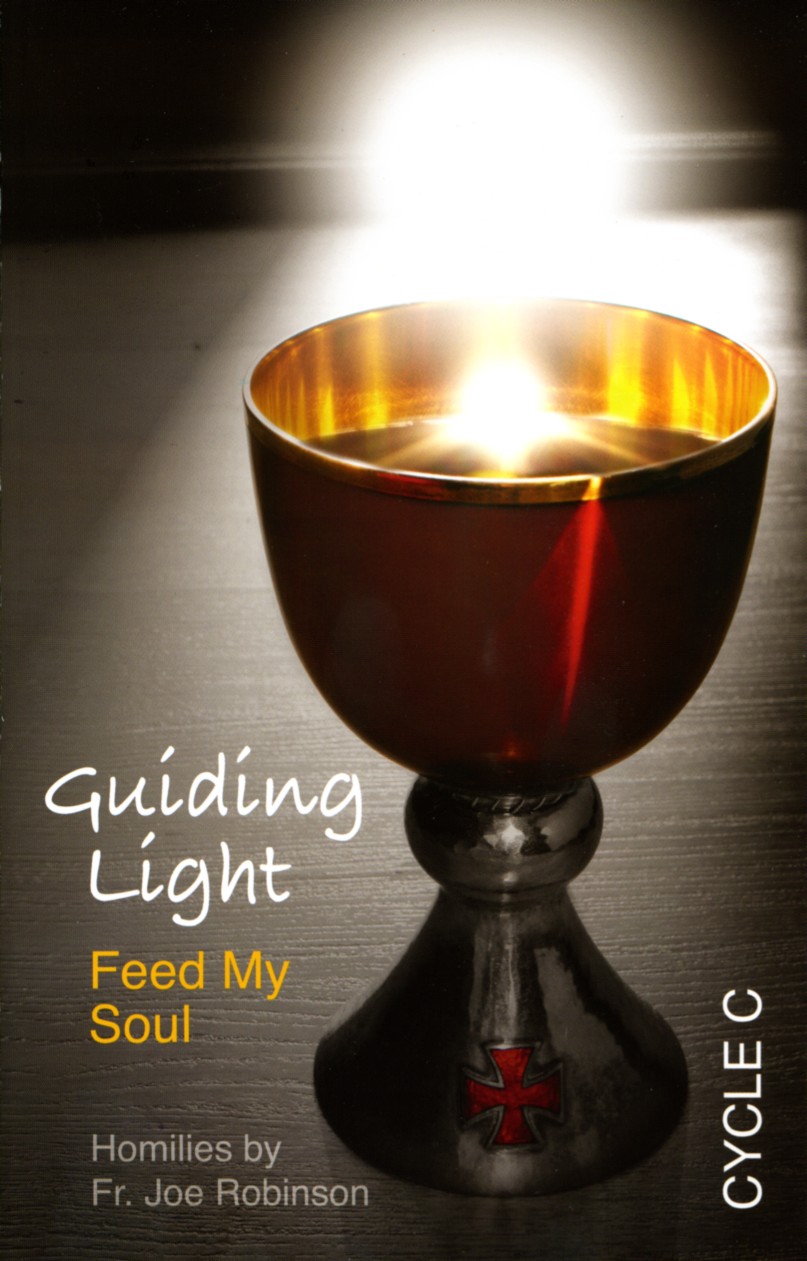
Please pray for an
urgent intention.
November 15, 2009
The parents that, though well meaning,
disempower a person —
From the Inner Child of the Past, —
"The woman was overwhelmed by the drudgery
of her life. Under the pressure of her job
and her responsibilities as a wife, her "child
of the past" gradually took over and sought
the reward she had received in childhood
when ill. She adopted her parents "solicitous"
attitude toward herself — which forced her
into bed for months. . .
This was a hard decision to make — to
abandon her childhood retreat. And it
took courage and persisting determination
for her to refuse to coddle her whimperings,
whining, protesting "child of the past"
who kept crying of aches and pains and
need to rest. Yet, with the kind of quiet,
patient persistence with which many
women meet great problems and real
pain, she overcame these parental
attitudes within herself and gained a
real life as a mature woman.
Readings of today's Mass
Daniel 12: 1-3‘At that time Michael will arise–the great Prince, defender of your people. That will be a time of great distress, unparalleled since nations first came into existence. When that time comes, your own people will be spared–all those whose names are found written in the Book.
‘Of those who are sleeping in the Land of Dust, many will awaken, some to everlasting life, some to shame and everlasting disgrace. Those who are wise will shine as brightly as the expanse of the heavens, and those who have instructed many in uprightness, as bright as stars for all eternity.
Hebrews 10: 11-14, 18
Every priest stands at his duties every day, offering over and over again the same sacrifices which are quite incapable of taking away sins. He, on the other hand, has offered one single sacrifice for sins, and then taken his seat for ever, at the right hand of God, where he is now waiting till his enemies are made his footstool. By virtue of that one single offering, he has achieved the eternal perfection of all who are sanctified.
When these have been forgiven, there can be no more sin offerings.
Mark 13: 24-32
'But in those days, after that time of distress, the sun will be darkened, the moon will not give its light, the stars will come falling out of the sky and the powers in the heavens will be shaken. And then they will see the Son of man coming in the clouds with great power and glory. And then he will send the angels to gather his elect from the four winds, from the ends of the world to the ends of the sky.
'Take the fig tree as a parable: as soon as its twigs grow supple and its leaves come out, you know that summer is near. So with you when you see these things happening: know that he is near, right at the gates. In truth I tell you, before this generation has passed away all these things will have taken place. Sky and earth will pass away, but my words will not pass away. 'But as for that day or hour, nobody knows it, neither the angels in heaven, nor the Son; no one but the Father.
I was in an accident and got pretty
banged up — it was in a van with 15,000
pieces to mail to the priests — Our white van,
I was not driving, slid completely over
a black car.
I felt as if my body was full of pain and yet
my heart, my mind, my love was in
perfect tact —
To endure it — I surrendered and went to
a place of peace in Jesus — It was like the
red room of the Mass Book — I love this place —
the reality of my love, untouchable by a
wounded body, the love, the reality of
this oneness I have with God — touching
Him in such a oneness in living
in Him in my heart —
Reality — oneness with God — rapture
with the Trinity even when I am embraced
in bodily pain —
My knowledge of God, my faith, my
knowing the big picture, the Plan of
the Father — untouched by wounds to
my physical body —
I know more from this — this reality
that our body can die and all our love,
our sweetness, our lives lived to please
our Father, living in obedience to the
Father's will is what we take with
us — all that is not physical — our
body dies, our soul goes on until the
resurrection of the body when the
soul and body are united — our love
goes on — our lives where we acquired
greater holiness goes on
Heaven is a place of perfect
love, fullness of grace, perfect
obedience, chastity, poverty — Now,
we take nothing that is physical
with us —
But my soul, my love, my
virtuous life given to God — my love
of God and others — unity — that which heaven
is made of
harmony
oneness
love
being in the beatific vision —
To the extent I lived my life to know
God, insight into the Divine Mysteries —
love of God and others — I will experience in
heaven in greater, 'maturity' and fullness
according to how I developed
this here below, but greater —
It's like a thimble — if I developed
a thimble of knowing how to love —
I can be complete and happy, a thimble
worth, but so much more — a bucket,
if I lived as the lives of the saints,
more like the Virgin Mary — so very
one in living as the Father wills —
So why live a life of deception, why
lie when our lives are lived to fight
authority and direction from God —
who do we fool with the clenched fist
of Christmas given to someone on Christmas
and a hand shake to others in the
same move, — the other hand, before God —
on this earth — we hate some and love others —
God knows our hearts — to shake
a fist in combat with one and shake
in unity with another is not like the
Heart of Jesus on Christmas morn
and to deny the sins we do and
tell ourselves we are perfect is
to lie for we stuff the guilt and
keep ourselves from restoring that needed
division we incurred with God when we
offended Him so —
God wants a humble heart — one who
knows they are not perfect and seeks
to recognize they live for the honor and
glory of God — not their vain glory
and seeking dominance for themselves —
If one fails to recognize one's sins the
devil can tempt a person and all the false
promises of doing better is like the Merry-
Go-Round called denial — A person makes
false promises and does not act as they say
they will. Mary say You must convert at
Fatima. This is at the heart of the message.
A person not recognizing their faults makes
no change in their behavior when giving
into new temptations and acts out sinfully
from the same place or worse than before.
False promises or pride were their focus in
proving they were always right, at all costs.
It is really a lie to not recognize
our sins and it keeps that distancing
in our relationship with God because
of sin - there — while we lie to ourselves
and pride ourselves on never being
wrong — pride is the doorway to satan.
1 John 1: 8-10
If we say, ‘We have no sin,’
we are deceiving ourselves,
and truth has no place in us;
if we acknowledge our sins,
he is trustworthy and upright,
so that he will forgive our sins
and will cleanse us from all evil.
If we say, ‘We have never sinned,’
we make him a liar,
and his word has no place in us.
When emotional wounds from
childhood relationships, divorces
rule our behavior on holidays —
weeks before and after — year after year —
we offend God who sent His only Son
to this world and Jesus who took flesh —
took on a human nature, the Divine
God, He came in the womb of a
human person, sinless, Mary, out
of love for us — to save us —
We could meditate our whole life on
the Omnipotent Savior taking flesh
and coming to this earth —
How could any one with such
an act of love given by God to
man — hurt and punish others because
of old emotional wounds of what
they missed in Christmas, Thanksgiving
year after year —
God teaches us about love — about
giving — the Divine Almighty Father —
gave His Son — see Him in the manger on
Christmas — on the cross —
God gives us Himself in the Eucharist
God is so generous to us
Fr. Carter says and I quote
Response in Christ — Chapter 6
The Christian and Sin
1) The Nature of Sin
"What is the nature of sin? Contemporary theology emphasizes that sin is not primarily a violation of a law, but a disruption of personal relationships. Sin is a refusal to love. Serious sin is a radical refusal to love. Venial sin is a partial refusal to love.
The most obvious personal relationship that is affected by sin is that between God and the sinner."
God wants us to be holy — to seek perfection —
to recognize our sins and tell Him we
are sorry.
Fr. Carter continues
"In sinning a man fails, to a lesser or greater degree, to accept God's loving gift of Himself. He fails also to respond with his own gift of love. In serious sin man refuses intimate friendship with God. In venial sin he dulls the ardor of that friendship. Man, in so far as he sins, maintains that he does not want his life to be directed by the loving hand of his heavenly Father. He wants to be a law for himself; he wants to be the one who decides what is good for himself and what is not. Schoonenberg observes: "Especially in the prophets sin is an aversion from and an unfaithfulness to Yahweh himself; hence it is placed in the heart rather than in the wrong deed. We see that aversion, that rebelliousness, that lack of faith which precede the act of transgressing the Law already in the story of the sin in paradise, where it is presented as the wish of possessing autonomously the knowledge of good and evil, of being independently the Law unto oneself. . .”1
1. P. Schoonenberg, Man and Sin (Notre Dame, Indiana: Fides, 1965), p. 8.
Luke 11: 29-32
The crowds got even bigger and he addressed them, ‘This is an evil generation; it is asking for a sign. The only sign it will be given is the sign of Jonah. For just as Jonah became a sign to the people of Nineveh, so will the Son of man be a sign to this generation. On Judgement Day the Queen of the South will stand up against the people of this generation and be their condemnation, because she came from the ends of the earth to hear the wisdom of Solomon; and, look, there is something greater than Solomon here. On Judgement Day the men of Nineveh will appear against this generation and be its condemnation, because when Jonah preached they repented; and, look, there is something greater than Jonah here.
October 12, 2009 - Homily by Fr. Barth (excerpt)
Two things from the Gospel today. The first is a matter of a generation that is evil, and Jesus is very clear why the generation is evil — because they seek a sign. In other words, they want God to reveal God's self as they want God to reveal God's self. They want God to, if you will, bend God's will to their will. They want God to be the God like they want God to be, instead of God being God. And the generation, which is called evil, to be indeed subservant to God's will.
And I think we can recognize that in our own era. And not just beyond these walls, because even for ourselves who are gathered here, we must recognize that we also at times, are unfaithful, that we want God to give us a sign, that we want God to be the kind of God that we want God to be, and sometimes we don't submit ourselves to God's own will. Isn't that true? And so we gather here to seek God's mercy and God's forgiveness, and to be more in sync with God's will, so that we might be what we are called to be as Christians in the world — salts, lights and leaven. But Jesus responds to — the evil age wanting to see a sign, wanting to see God's action as they want it, with a response.
Excerpt from Response in Christ by Fr. Edward J. Carter, S.J.
SIX The Christian and Sin (excerpt)
As we sin and fail to love God, we close in upon ourselves. We prevent a further growth in openness to transcendence, to God and to His grace. We block off the source of our only real self-development and fulfillment. To the extent that we close in upon ourselves in sin, to that extent we feel the misery of sin. This misery of spiritual "self-enclosedness" is a faint participation in the essential pain of hell. The damned are eternally and completely closed in upon themselves, completely deprived of God and other personal relationships. This, then, is hell – the damned really experiencing no one but themselves. Hell is God's ratification of the choice which the unrepentant serious sinner has himself made. This choice is one of radical self-isolation.
Sin is primarily a refusal to love God, a refusal to be loved by Him, to be guided by Him. In sinning, man seeks for a false fulfillment, and therefore actually becomes impoverished. The great St. Augustine puts it this way: "For when the soul loves its own power, it slips from the common whole to its own particular part. Had it followed God as its ruler in the universal creature, it could have been most excellently governed by His laws. But in that apostatizing pride, which is called 'the beginning of sin', it sought for something more that the whole; and while it struggled to govern by its own laws, it was thrust into caring for a part, since there is nothing more than the whole; and so by desiring something more, it becomes less. . .”2
Yes, sin is an act disruptive of one's relationship with God. But sin has other dimensions also. It is a refusal to love other men as we should. For the Christian, sin is an offense against the covenant life of the People of God. In some way the sinfulness of the individual Christian makes itself felt in the corporate body which is the Church. The Christian, in sinning, is failing to love the corporate good of the People of God. He is failing to contribute his share to the progressive maturation in Christ of the total Christian community. The Christian in his sin becomes a burden to the People of God.
Sin also is an obvious refusal to love others in those instances when one directly harms others through his transgression. So many sins come under this category: theft, all forms of uncharity, social injustice, scandal, detraction. Furthermore, not only does one man often sin against another, but he frequently leads another into sin. In God's plan man is supposed to help his neighbor achieve his temporal and eternal happiness, but how often, even among Christians, the opposite is true. Not to make a positive contribution to the true growth of others is failure enough, but to be a positive hindrance is a far greater evil.
There is still another way in which the sinner refuses love to his fellowmen; when man sins he makes his contribution to the "sin of the world.”3 He thus adds to that huge, negative weight, nourished by the sins of the centuries, a weight which is always trying to draw man away from his God-given destiny. This mass of sinful ugliness, this "sin of the world," always has its considerable influence, but at times its hideousness makes itself especially manifest. The great race riots which have tragically risen up recently in various parts of the United States are examples of these special manifestations of the "sin of the world." Such events are not isolated instances of sins connected with race. In back of such tragedies there is a long history of grave social and racial sins, of seething hatred of white for black, and black for white. Such accumulated sinfulness in regard to race is part of the "sin of the world."
There are many other examples of these special manifestations of the "sin of the world." There are the world wars and the lesser wars, with their share of unbelievable accounts of the hatred which man can impose upon his fellowman. There are the histories of the various crime syndicates throughout the world with all their blatant categories of human degradation – narcotics, prostitution, terrorization and the rest. There are the sins of colonialism and the sins of communism.
The "sin of the world" with its stark and bold manifestations is a sickening reality. But a reality it is. And each man's sinfulness adds a little to this universal world sin. Each man's sinfulness contributes to sin's divisiveness. Man is intended to help Christ progressively unify all creation more and more into Himself. When man sins, he contributes to the disruptive and disunifying force of the "sin of the world."
Sin, then, because it is a failure to love God, man and the world, is selfishness. Sin seems to offer some sort of happiness, or advantage, or fulfillment. But this is a delusion. Sin can accomplish none of these things, because man's only real happiness and fulfillment comes from his authentic relationship in love with God, his fellowman and the rest of creation. Sin works against all these relationships.
Sin is so hard to understand because it is an absurdity. But if we are to grow properly in the Christian life, we must have some basic realization of what sin is, and of God's attitude towards sin and the sinner. Our best source for such a mature realization is given to us in the crucified Christ. In this figure we can know all the Father wants us to comprehend concerning sin. First of all, Christ crucified tells us very starkly of the overwhelming heinousness of sin. We know that sin is overwhelmingly evil because it alone could nail Incarnate Goodness to the cross. Secondly, Christ crucified speaks to us concerning the justice of God. God's justice does ask satisfaction for sin – yes, even that satisfaction which is the death of His Son. Thirdly, and very importantly for us poor sinners, the crucified Christ speaks to us unmistakably and overwhelmingly of the Father's great love and mercy towards us. Because of this love and mercy we can be so positive about human existence, for great as is the power of sin, the love and mercy of the Father, incarnated in His Son, is infinitely greater. This is our peace and consolation.
God's love and mercy moves the sinner toward repentance, and when the sinner repents, God's love changes him. In Isaiah the prophet we read: " 'Come now, let us talk this over, says Yahweh. Though your sins are like scarlet, they shall be as white as snow; though they are red as crimson, they shall be like wool.' " (Is 1:18).
Included in our sorrow for sin is a resolve to take the proper means and precautions to avoid sin in the future. One of the reasons we fall into the same sins with the same frequency is that we tend often enough not to go to the root causes of our failures, and, consequently, we often fail to apply the more efficacious remedies. All this not to say that we should become morbidly introspective in looking at sinfulness. However, without succumbing to this type of introspection, we all must allow for appropriate self-examination and self-knowledge.
Part of this self-examination and self-knowledge includes the manner in which I handle temptation in my life. The proper attitude toward temptation lies between two extremes. The person at one extreme is overly fearful of temptation, concentrates too much on avoiding it, and can even tend to equate temptation with sin. Such an attitude toward temptation breeds a negative mentality toward the Christian life, and detracts from the peace, joy and happiness which Christ wants us to experience.
The opposite attitude is that which is careless towards temptation. To take reasonable and grace-inspired precautions against temptation is not to be negativistic, but realistic. It is to realize that I am a sinner, and that there are various ways by which I can be led to sin. I cannot avoid all temptations, but out of loyalty to Christ, man and the world, I should not recklessly bring temptation upon myself.
Despite our best efforts there will always be some sin in our lives, unless God were to give extraordinary graces. There is only one human person, as far as our certain knowledge goes, who has been preserved from all sin. This person is Christ's mother, Mary. Let us remember this very important point, however. The Church's teaching that we cannot avoid all venial sin without a very special assistance from God refers to semi-deliberate venial sin. With God's ordinary graces we can avoid all fully deliberate sin, both serious and venial. It is this fully deliberate sin which is such an obstacle to our proper growth in the Christian life. Finally, let us remember that as we grow in Christ, even the number of semi-deliberate sins become fewer.
The Sacrament of Penance
All of us are sinners, and God in His mercy has made special provision for this fact. He has given us the sacrament of penance. It is fitting – in fact necessary as regards serious sin – that the Christian incarnate his sorrow for sin through this sacrament. This is in keeping with the incarnational and sacramental dimensions of our life of grace. These dimensions impel us to exteriorize or incarnate our interior life of grace. The central focus for such exteriorization is the Mass and the sacraments. This exteriorization satisfies both our corporeal and social nature.
As regards this social aspect of grace-life exteriorization, the Christian must always remember that he is a member of the new covenant, he is a member of a community. In sinning he has not only failed to love God, he has also sinned against the Christian community, and against man in general. As he expresses his sorrow for sin to God in the sacrament of penance, the Christian also gives expression to this communal aspect of his Christianity, because the sacraments have a very definite communal dimension. They are the sacraments of a community, the People of God. Through the sacrament of penance, therefore, the Christian expresses his sorrow to God in community and he likewise receives God's forgiveness in community.
Certain contemporary practices which strive to bring forth more fully the communal aspect of the sacrament of penance are to be highly recommended.4 The practices we speak of are those in which there is a preparation for private confession and absolution through communal readings, prayer and examination of conscience.
What about the frequency of receiving the sacrament of penance? Some in the Church today seem to be questioning the value of frequent confessions of devotion, that is, confessions which are not necessary because there is no serious sin. What is the truth of the matter? First of all, it must be admitted that in the early Church this sacrament was administered much less frequently that it is today. Gradually, the practice of frequent confession inserted itself more and more into the life of the Church. It is difficult not to admit that such a practice has taken root under the inspiration of the Holy Spirit. Frequent confession, although not necessary, has various values. Rahner, in his usual penetrating manner, gives a contemporary description of the value of frequent confession of devotion.5 The new Dutch catechism puts it very simply: "Some Catholics have the habit of receiving the sacrament frequently. If this is the result of anxieties, it is not advisable. But if it is due to a desire to meet Christ as the Lord who forgives, frequent confession can be a very evangelical practice."6
In conclusion, we remind ourselves that the struggle against sin is part of the Christian participation in Christ's death-resurrection. In baptism we die to sin and rise to a newness of life. We are constantly living out one aspect of our baptism, then, through our continual resistance to the forces of sin. As with all elements of our Christian existence, such an effort requires motivation. We can use a variety of motives, of course, but all of them ultimately will be centered in Christ. To grow in the realization of what sin has cost Christ is to grow in the determination to avoid sin. To permeate such determination with love of Christ is to respond to Him who has loved us first: "The life I now live in this body I live in faith: faith in the Son of God who loved me and who sacrificed himself for my sake." (Ga 2:20).
______
2. St. Augustine, The Trinity, Bk. 12, Ch. 14 (Washington: Fathers of the Church, 1963), p. 356.
3. For one description of the "sin of the world", see Schoonenberg, Op. cit., pp. 98-123.
4. One description of such services is given by A. M. Roguet, O.P., "Les celebrations communautaires de la penitence" in Vie spirituelle, 116 (1967), pp. 188-202.
5. Cf. Karl Rahner, Theological Investigations, Vol. III (Baltimore: Helicon, 1967), pp. 177-189.
6. A New Catechism (New York: Herder & Herder, 1967), p. 459.
Man exists to be happy.
Sin causes unhappiness.
Sin therefore must in some way injure
the human nature.
St. Thomas — My Way of Life says by Farrell and Healy
"Experience shows that a sinful man
has lost his ability to judge
what he should and should not do" —
Fr. Pasquini calls it
An ill - informed conscience
St. Thomas My Way of Life says
"Actually the most harmful effect of
sin is the stain which obscures
the beauty of the soul of man.
The soul is the noblest part of man.
In it God has impressed the light
of reason which is a reflection of the
light of the eternal law or reason of
God. When man is justified by God's
grace the soul shines with the light
or glory of divine grace. But mortal
sin is contrary to the light of reason
and divine grace. It expels grace from
the soul and dims the light of reason."
"The sad part of this stain in the soul
is that it darkens the light of
reason and makes it difficult
for man to see clearly the good
he should seek."
"The soul in the stain of sin is
out of order —
. . .
"Since venial sin has, in fact, the dangerous
habit of leading to mortal sin, both types
of sin are the enemies of human
happiness.
The wise man, if he has fallen into sin,
will try to repair the damage he
has done to himself."
"This debt of punishment for sin shows
the illusory character of the happiness
sought by sin.
Every sin must be paid for in one
way or another.
Every sin begets its own punishment.
The punishment can be eternal or
only temporary. But all punishment
is painful and therefore opposed to
true happiness —
Sin is the great foe of human happiness"
. . .
"Physical illness can destroy
for a time the life of the body.
But sin can destroy forever the
life of the soul in God.
In this life it enslaves a man to
the conflicting desires of a soul
whose powers are at war with
one another.
In the next life it condemns a
man to eternal agony (if mortal)
As fire destroys a house, so sin
destroys happiness. A sane man
will neither enter nor stay in a burning
house. A wise man will neither enter nor
stay in a house of sin."
We can send Fr. Joe's
homily book to a priest
for a little over a dollar.
Can you please help us get
these homilies to the priests?

Please help us with your donation.
Call Shepherds of Christ
1-888-211-3041
Prayer Cards available
Holy Spirit Prayer Act of Consecration to
Immaculate Heart of MaryAct of Consecration to
Sacred Heart of JesusPrayer for Priests
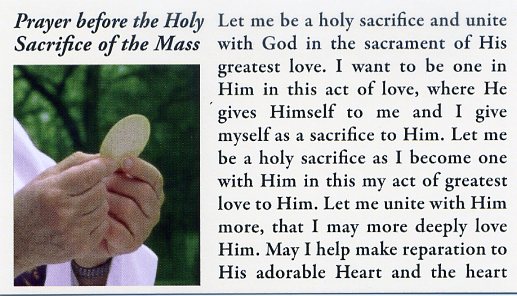 |
| Prayer before the Holy Sacrifice of the Mass |
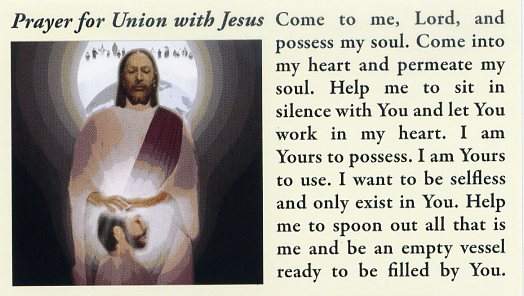 |
|
Prayer for Union with Jesus |
Available for .25¢ each plus postage
Call Shepherds of Christ
1-888-211-3041
Prayer Card 4" x 6"
.50¢ each plus postage
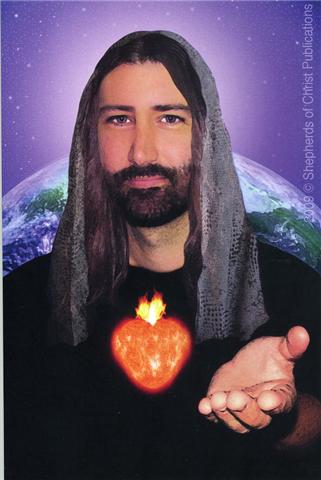

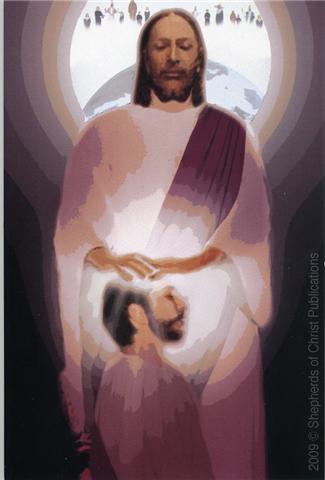

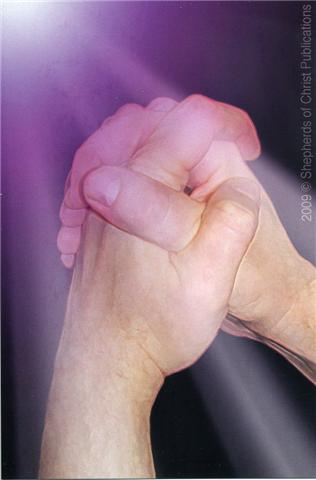
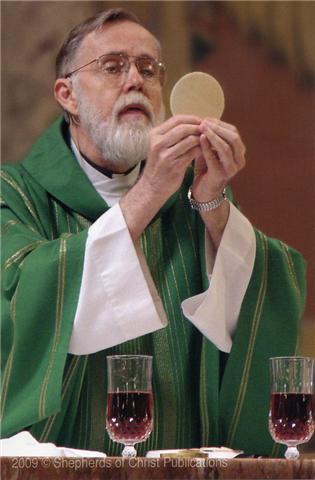
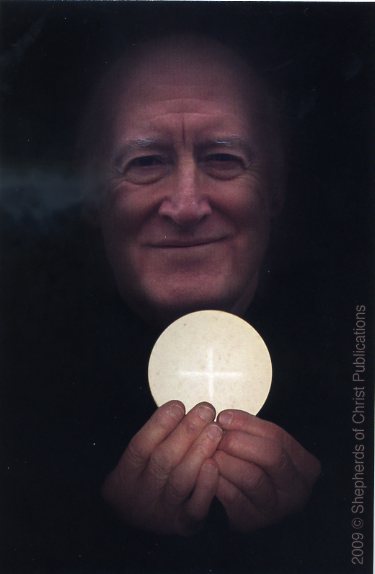
size 5 1/2" x 8 1/2"
$1.00 plus postage
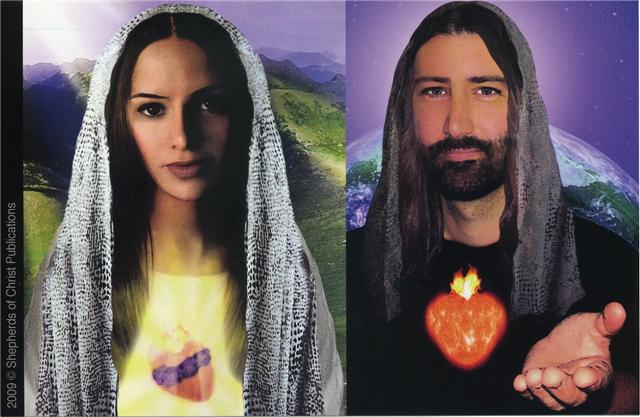
Statues
Sacred Heart of Jesus w/glass - 18
Our Lady-Guadalupe w/glass - 12
Limpias - 8
Immaculate Heart w/glass - 18
I Heart - Ivory w/glass - 18
Our Lady of Grace w/glass - 18
Our Lady-Mt. Carmel w/glass - 18
Our Lady of Lourdes w/glass - 18
Infant of Prague w/glass - 24
Sacred Heart of Jesus w/glass - 24
Sacred Heart -Blessing w/glass - 24
Sorrowful Mother w/glass - 24
I Heart - Ivory w/glass - 24
I Heart of Mary w/glass - 24
Our Lady of Lourdes w/glass - 24
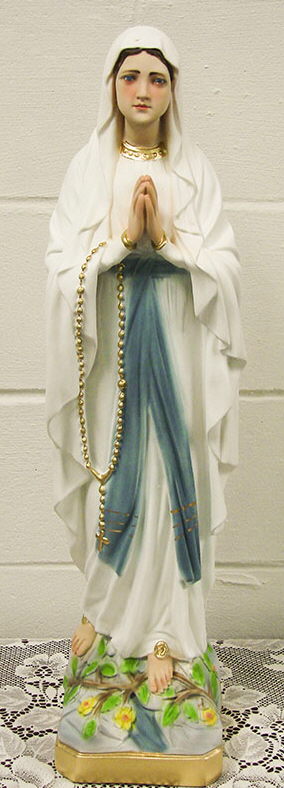
Our Lady-Guadalupe w/glass - 28
Our Lady of Grace w/glass - 24
Our Lady-Mt. Carmel w/glass - 24
Fatima w/glass - 11
Pilgrim Virgin w/glass - 12
Pilgrim Virgin w/glass - 15
Fatima w/glass - 18
Pilgrim Virgin w/glass - 18
Pilgrim Virgin w/glass - 27
St. Padre Pio
St. Joseph
St. Therese
St. Francis
St. Anthony
St. Claire
Limpias
St. Jude
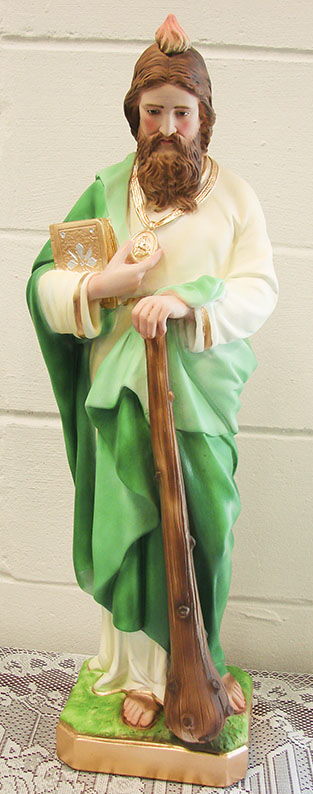
Divine Mercy
Holy Family
Angel
St. Philomena
Pieta - Marble
Pieta - Color
Holy Family
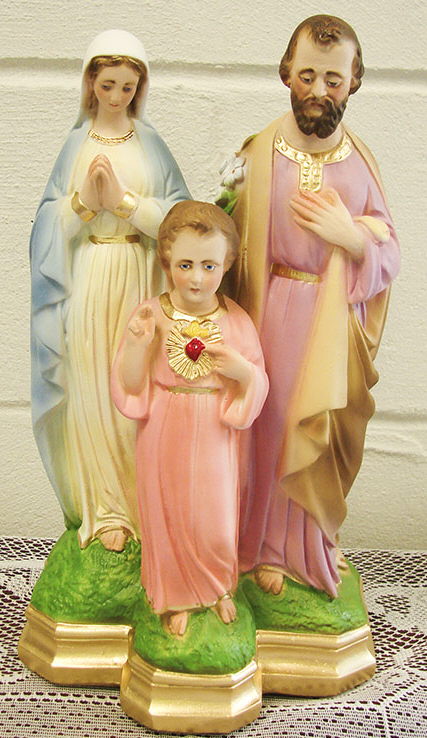
St. Anthony - 18
St. Francis - 18
St. Joseph - 18
St. Therese - 18
St. Rita - 18
St. Clare - 12
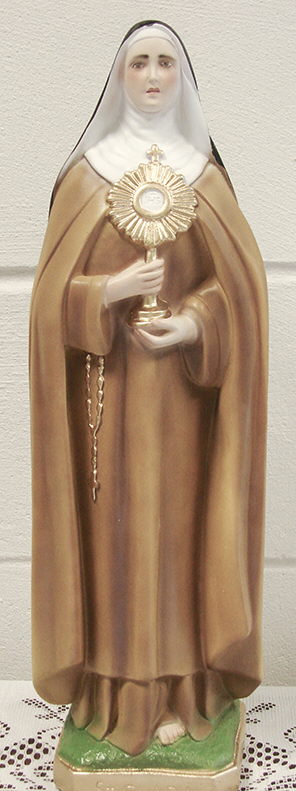
St. Rita - 12
St. Padre Pio - 12
Divine Mercy - 12
Shepherds of Christ Ministries
P. O. Box 627
China, IN 47250
Toll free - 1-888-211-3041
Local - 1-812-273-8405
fax - 1-812-273-3182
web: www.sofc.org
e-mail: info@sofc.org
Size Price Quantity Holy Family
24"
$180
Limpias
24"
$125
St. Anthony
24"
$125
St. Claire
24"
$125
St. Francis
24"
$125
St. Joseph
24"
$125
St. Jude
24"
$125
St. Padre Pio
24"
$125
St. Therese
24"
$125
Divine Mercy 22"
$125 Angel 22"
$100 St. Philomena 20"
$100 St. Philomena 16"
$65 St. Joseph 18"
$65 St. Francis 18"
$65 St. Anthony 18"
$65 St. Rita 18"
$65 St. Therese 18"
$65 Pieta - Color 15" $75 Pieta - Marble 15" $75 Holy Family 12"
$60 St. Padre Pio - standing 12"
$40 St. Padre Pio - sitting 8"
$50 St. Rita 12"
$40 Divine Mercy
12"
$40 St. Claire 12"
$40 Limpias 8"
$25 Our Lady of Guadalupe w/glass 28"
$500 Our Lady of Mt. Carmel w/glass 24"
$500 Immaculate Heart of Mary w/glass
24"
$500 Immaculate Heart - Ivory w/glass
24"
$500 Infant of Prague w/glass
24"
$500 Our Lady of Grace w/glass
24"
$500 Our Lady of Lourdes w/glass
24"
$500 Sacred Heart of Jesus w/glass 24"
$500 Sacred Heart -Blessing w/glass 24"
$500 Sorrowful Mother w/glass
24"
$500 Immaculate Heart of Mary w/glass 18"
$300 Immaculate Heart - Ivory w/glass 18"
$300 Sacred Heart of Jesus w/glass 18"
$300 Our Lady of Lourdes w/glass 18"
$300 Our Lady of Grace w/glass 18"
$300 Our Lady of Mt. Carmel w/glass
18" $300 Our Lady of Guadalupe w/glass 12"
$200 Fatima w/glass
11"
$150 Fatima w/glass
18"
$250 Pilgrim Virgin w/glass 12"
$160 Pilgrim Virgin w/glass 15" $200 Pilgrim Virgin w/glass 18" $250 Pilgrim Virgin w/glass 27"
$450
Call for Shipping Price (1-888-211-3041)
Name
Sub-Total Address
IN Tax (7%) City
Shipping State Zip
Donation Telephone
Order Total
Shepherds of Christ
P. O. Box 627
China, IN 47250
Call Shepherds of Christ
1-888-211-3041
Fr. Joe's Homily Books
Guiding Light -
The Word Alive in Our Hearts$10.00
Guiding Light -
Focusing on the Word$10.00
Fr. Carter's Books
Priestly Newsletter Book I
12 Newsletters
July 1994 - June 1996$12.00
Priestly Newsletter Book 2
17 Newsletters
1996 - 1999$12.00
Priestly Newsletter Book 3
4 Newsletters & Prayers
2000$12.00
Synopsis of the Spiritual Life
Spirituality Handbook
$3.00
Messages given
by Jesus and Mary 1994
Tell My People
$10.00
The Pain and the Joy
$10.00
Priestly Newsletter on CD
2000 - Issue 1
$10.00
Priestly Newsletter on CD
2000 - Issue 2
$10.00
Fr. Pasquini's Books
Authenticity
Prayers and Meditations
$10.00In Imitation of Two Hearts
For those suffering or
in Nursing Homes
$10.00Light, Happiness and Peace
Journeying through traditional
Catholic Spirituality$10.00
Medicine of Immortality
Prayers and Meditations - will assist the reader in growth toward a deeper understanding of the mystery of the Eucharist
$10.00
Ecce Fides - Pillar of Truth
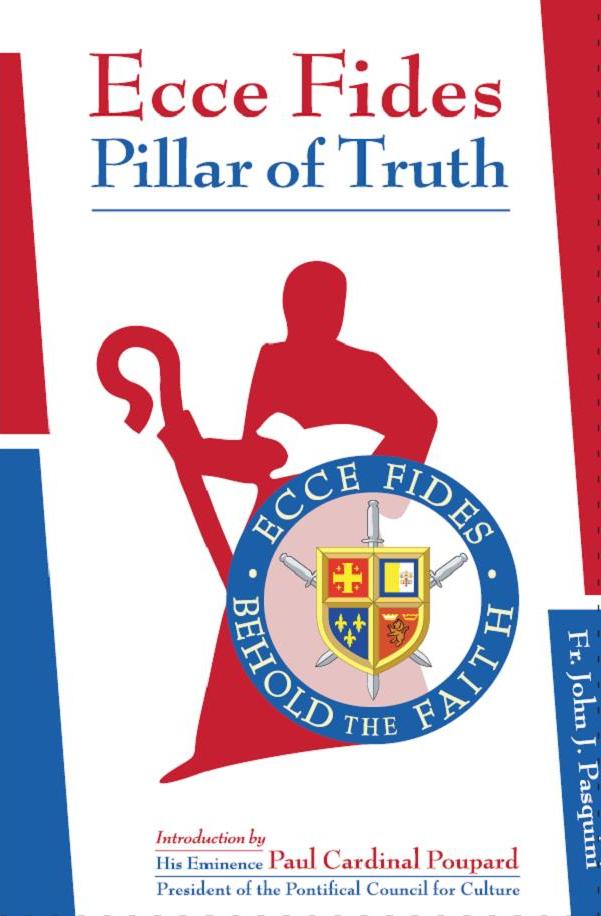
Ideal for RCIA, Adult & Youth Bible Study, Homeschooling, Catholic
Identity Studies$10.00
Shepherds of Christ Newsletters
9 Newsletters
2006 - 2008
$36.00
DVDs and CDs by Fr. Pasquini
Authenticity DVD
Prayers on the Ocean$10.00
Nursing Home Mass DVD
$10.00
Consolation DVD
$10.00
Medicine of Immortality
Read by Rita Ring2 CDs - $17.00
In Imitation of Two Hearts DVD
$10.00
Consolation CD
by Fr. John$8.00
Nursing Home Mass CD
$8.00
Holy Spirit Novena DVD
$10.00
Divine Mercy Chaplet DVD
$10.00
plus shipping
Call Shepherds of Christ
1-888-211-3041
God’s Blue Books
God’s Blue Book 1 –
Teachings to Lift You Up$10.00
God’s Blue Book 4 –
The Love of the Hearts of
Jesus and Mary$5.00
God’s Blue Book 2 –
The Fire of His Love$10.00
God’s Blue Book 5 –
So Deep Is the Love of His Heart$5.00
God’s Blue Book 3 –
Love God, Love One Another
(Fr. Carter's favorite)
$10.00
God’s Blue Book 6 –
He Calls Us to Action$10.00
Rosary Books
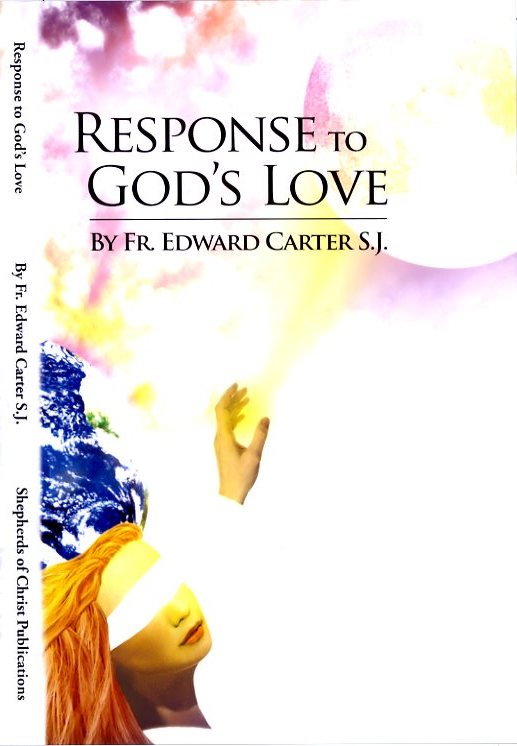
Available for $10.00 each plus postage
1-888-211-3041
Call Shepherds of Christ
We are trying to get
Response to God's Love
and the Mass Book out.
Anybody who wants to help us
with a donation to get these 2 books
out in the Priestly/hierarchy mailing —
Please call Shepherds of Christ
1-888-211-3041
July 31, 1994
Words of Jesus to Members of
Shepherds of Christ Associates:"My beloved priest-companion, I intend to use the priestly newsletter, Shepherds of Christ, and the movement, Shepherds of Christ Associates, in a powerful way for the renewal of My Church and the world.
"I will use the newsletter and the chapters of Shepherds of Christ Associates as a powerful instrument for spreading devotion to My Heart and My Mother's Heart.
"I am calling many to become members of Shepherds of Christ Associates. To all of them I will give great blessings. I will use them as instruments to help bring about the triumph of the Immaculate Heart and the reign of My Sacred Heart. I will give great graces to the members of Shepherds of Christ Associates. I will call them to be deeply united to My Heart and to Mary's Heart as I lead them ever closer to My Father in the Holy Spirit."
- Message from Jesus to Father Edward J. Carter, S.J., Founder, as given on July 31, 1994,
feast of Saint Ignatius Loyola, Founder of the Society of Jesus (The Jesuits)
The China Church is over 140 years old
and we pray in there 24 hours a day.
It needs stucco and so does
the community building.
Can you please help us?
Call Shepherds of Christ
1-888-211-3041
Likewise the priest house
is 150 years old.
Jesus told us to repair it
which we have been doing.
We need $13,000.00 for this work.
You can help put the Blue Book V
in the hands of 1,000 people
we need $1,200 postage for this
It is ready to go
Call Shepherds of Christ
1-888-211-3041
You can help put Fr. Joe's homily
book in the hands of
1,000 priests — it costs $1,100
This can help 1,000 parish priests
talk about Covenant for Lent
Please help us
It is ready to go
Call Shepherds of Christ
1-888-211-3041
Crucifix — hand carved by Felix
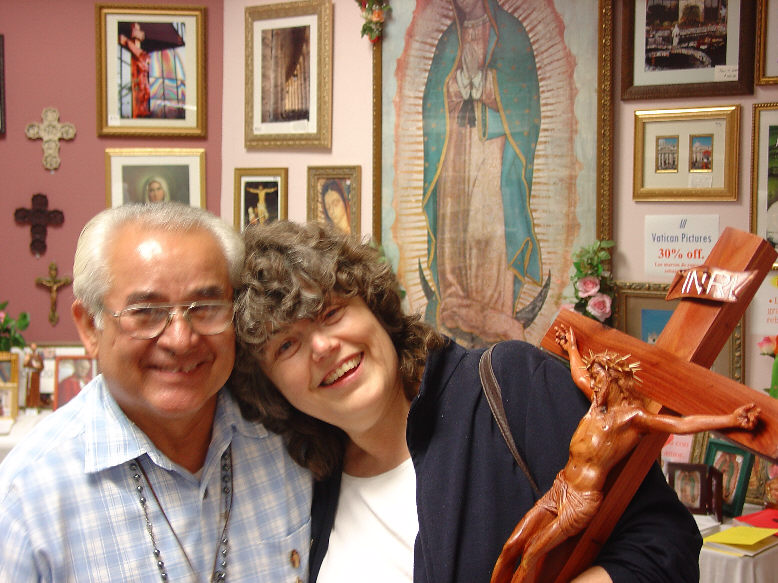
Available for $750.00
Brand New Internet Store